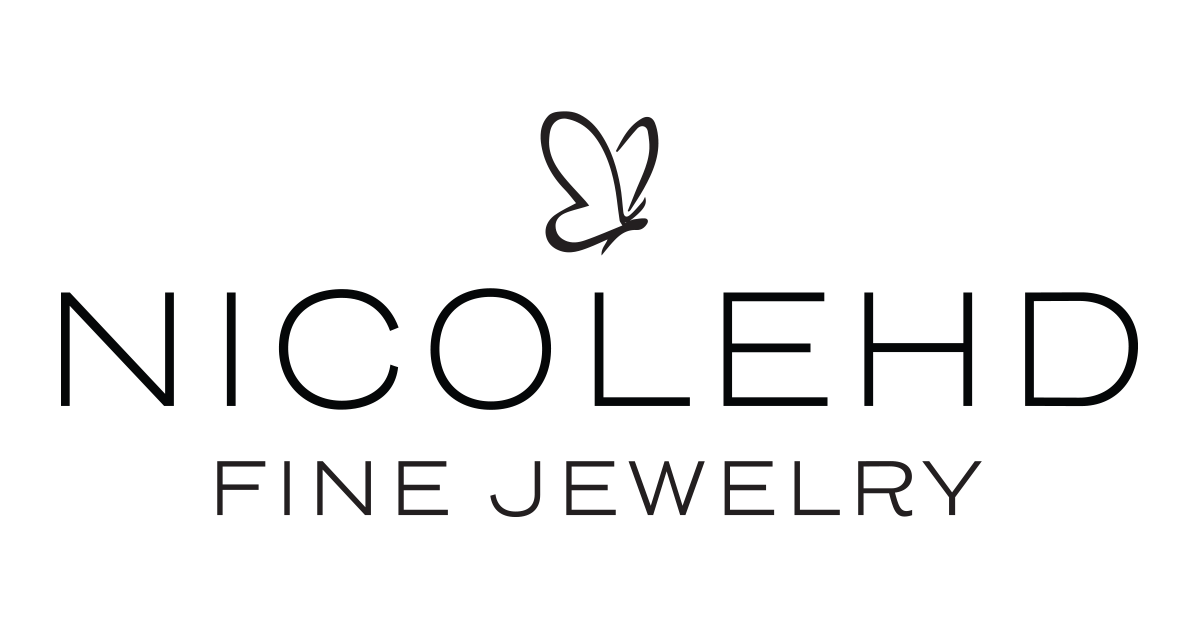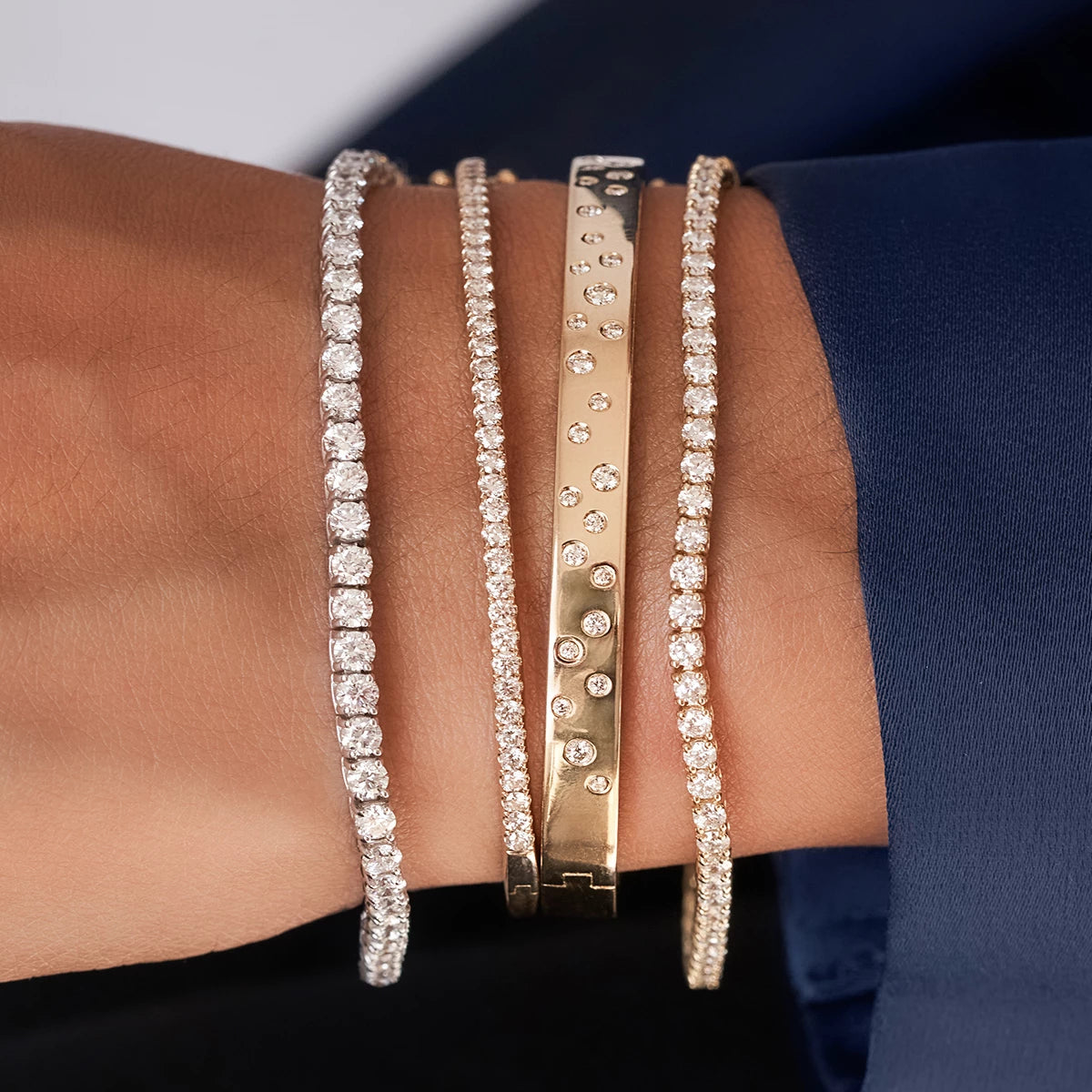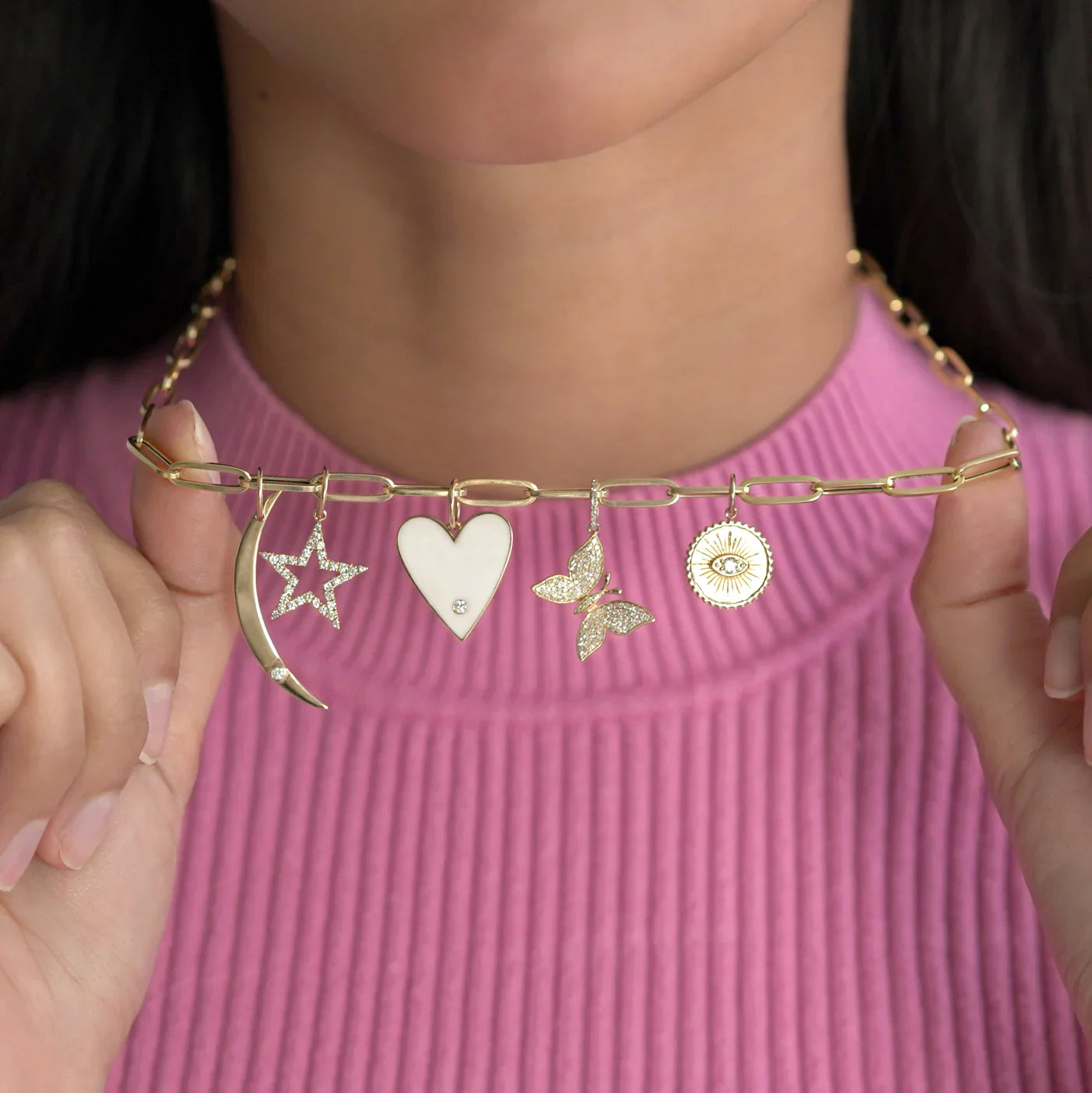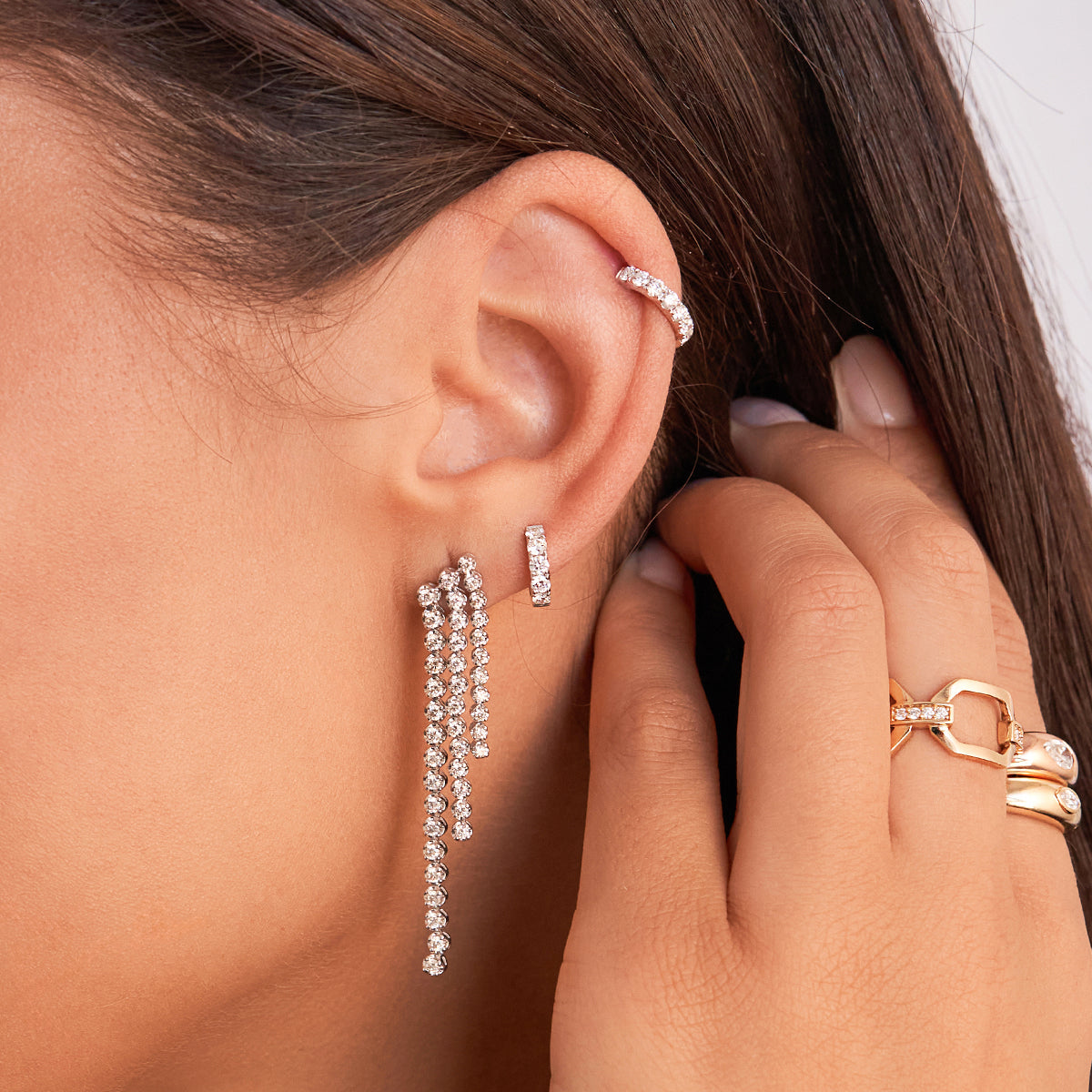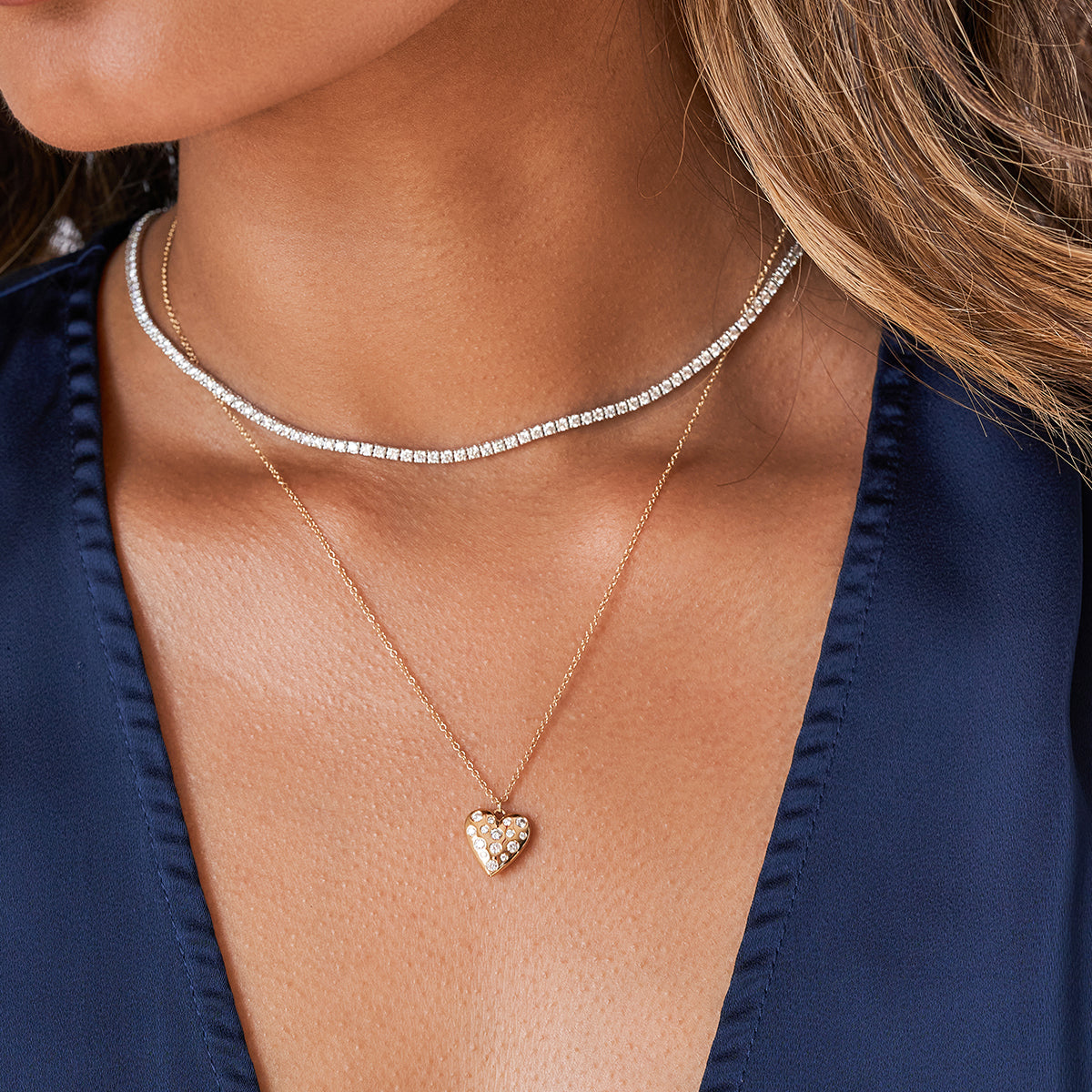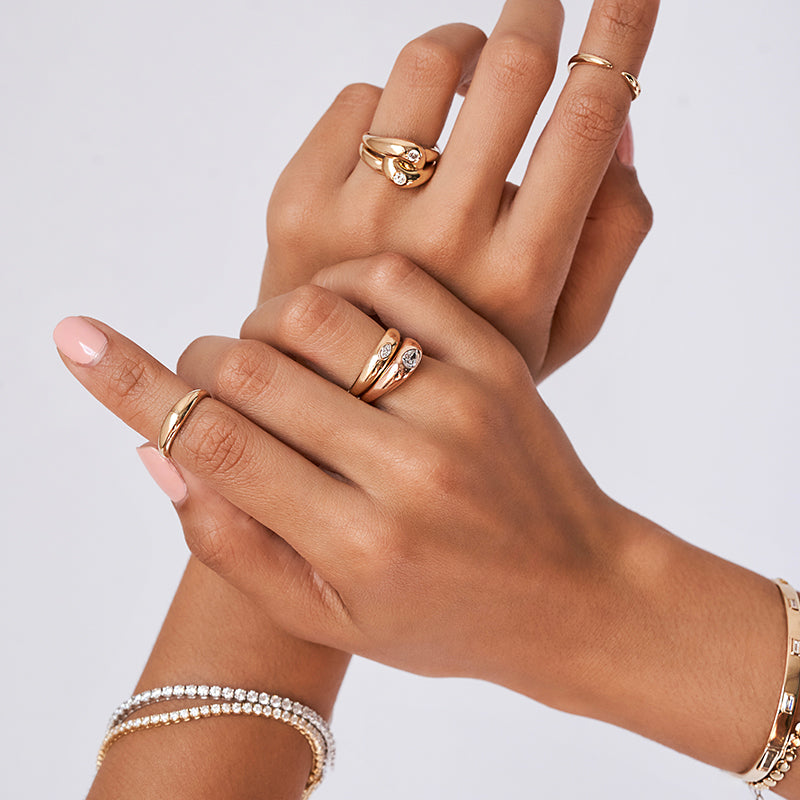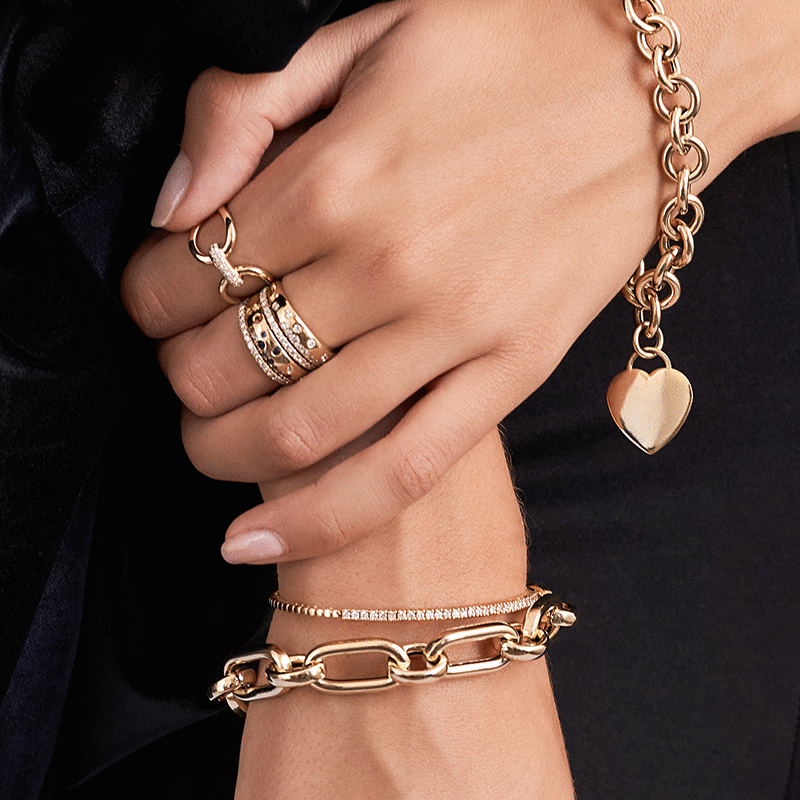8 Common Jewelry Cleaning Mistakes and How to Avoid Them
Do you know the last time you cleaned your beloved ring?
If you can't remember, it might be time to give your favorite jewelry some love. Cleaning your jewelry regularly will help keep it looking sparkling and new. But proper cleaning isn't as easy as jumping on the internet and choosing the first tip you see. It is important to understand the material in order to choose the correct cleaning solutions and techniques.
Be wary of old wives' tales and learn how to clean jewelry properly. But first, let's find out the most common jewelry cleaning mistakes and how best to avoid them.

1. Scrubbing With Toothpaste
Although perfect for your teeth, toothpaste is not the best cleaning product for most types of jewelry. Cleaning your jewelry with toothpaste can do more harm than good. Toothpaste is abrasive, meaning it can scratch the gold and loosen the stones.
And don't forget, toothpaste is corrosive to metal. Specifically, keep toothpaste away from your pearls and opals. The toothpaste will cause them to lose their color and shine.
2. Soaking in Lemon Juice
Lemon juice is another old wives' tale that we're about to bust. It's a popular DIY solution, but should not be used for cleaning your jewelry.
Lemon juice is very acidic and abrasive for cleaning jewelry. The acidity in lemon juice will discolor, tarnish and scratch your jewelry pieces.
If you’re cleaning your pearls, definitely avoid lemon juice. Pearls are fragile and, because of the acidity, may even disintegrate if soaked in lemon juice.
3. Boiling Your Jewelry
Tossing your jewelry into a hot pot of water doesn't seem as crazy as lemon juice and toothpaste. In fact, it doesn't sound too far-fetched at all. That's because steam is one of the best ways for jewelers to professionally clean jewelry. Even then, soft stones, including emeralds and opals, should not be steamed because they might crack.
Soaking your jewelry directly in boiling water can weaken and misshape your jewelry. A quick dunk may not affect it much, but avoid this method with your softer and thinner pieces.
4. Trying Bleach
Bleach may be able to get out that pesky wine stain in your brand new white blouse, but it won't help your jewelry. Bleach is made up of harsh chemicals that will break down the metals in your jewelry. It can cause permanent damage and discoloration.
It's also best to avoid chlorine, such as swimming pools and spas. Chlorine can slowly erode the finish and polish of most gemstones.
Depending on the amount of damage, soap and water can counteract the effects of the chlorine. But do you really want to take the risk? Keep your pieces beautiful by avoiding bleach and chlorine.
5. Wearing It in the Shower
We've all done it. But while you're getting clean, your jewelry isn't. It actually can make your jewelry dirtier because it collects soap scum.
Some types of jewelry such as 14k gold, titanium, and other grades of steel will survive. But others won't.
Hard water damages softer jewelry. And if you like your showers hot, this can also damage the adhesives that hold your jewelry in place.
It's best to take off your jewelry before your shower and only put it back on after you've applied lotions and sprays. These can also cause damage due to the chemicals and oils.
6. Submerging in Vinegar
Vinegar is another popular at-home solution for cleaning. But like lemon juice, vinegar is very acidic and will cause damage to your soft stones and plated jewelry.
Soaking your jewelry in a bowl of vinegar will remove the jewelry’s shine and finish. If you've made the mistake of trying vinegar, don't despair. Everybody learns from their mistakes. And better yet, it's an opportunity to update your collection and freshen up your look
7. Using Baking Soda
Another popular household cleaner that could damage your jewelry.
Baking soda is abrasive and too alkaline. It can scratch softer metals and stones. In fact, baking soda is just as damaging as acidic substances like lemon juice and vinegar.
Our tip? Avoid baking soda. Leave it to tackle tough stains in your oven and not your diamond ring. Instead, try non-abrasive soap and water. It's a classic cleaning combination for a reason.
8. Not Knowing What Your Jewelry Is Made Of
Not all of your pieces of jewelry are alike. Some can handle certain cleaning methods, while others can't. If you don't know what the material is you increase the risk of irreversible damage.
In most cases, cheaper jewelry requires delicate handling because the metal is softer. However, the same can sometimes be said for expensive or delicate jewelry as well.
When you make a purchase, be sure to check what type of materials are used and ask what's the best cleaning solution. In some cases, your warranty might even include a free clean.
9. Overwashing and underwashing
Although many jewelers claim cleaning your diamond accessories with jewelry cleaner only takes 3 minutes, we suggest leaving it overnight for the best result. This way the diamonds have time to be properly cleaned.
For gold and platinum jewelry, be careful not to clean it too often. Professionally polishing your jewelry actually removes a very fine amount of the metal each time. Doing this every so often works well but you don’t want to go overboard with it.
10. Jewelry Cleaner
Jewelry cleaners are a great way to clean many of your jewelry pieces, but there are some metals and stones you should avoid washing with a jewelry cleaner.
Putting any jewelry that is not made from 10k, 14k, 18k gold or platinum into a jewelry cleaner will contaminate the cleaner. Jewelry cleaned in the contaminated solution will easily tarnish.
Also, pearls should never be cleaned in a jewelry cleaner. It will remove the pearl’s luster.
Avoid Jewelry Cleaning Mistakes
Sometimes all you need is a little warm water mixed with mild dish soap. This classic combo goes a long way.
If you are still unsure, contact your professional jeweler or reach out to the NicoleHD Jewelry team. They can help you identify the different types of jewelry you own and suggest products to add to your jewelry cleaning kit. Don’t risk ruining your beautiful pieces with DIY solutions or old wives’ tales.
And if you're interested in adding to your collection, check out our entire everyday fine jewelry collection.
 GET 15% OFF YOUR FIRST ORDER WHEN YOU SIGN UP FOR EMAILS
GET 15% OFF YOUR FIRST ORDER WHEN YOU SIGN UP FOR EMAILS